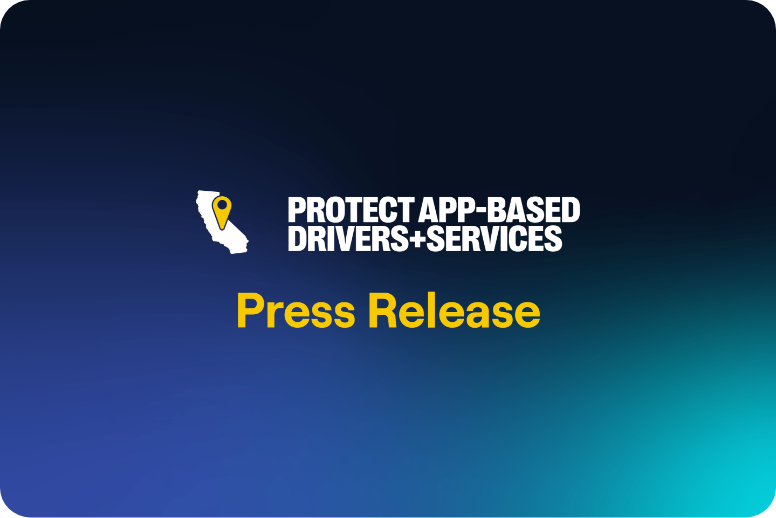Study by MIT professor finds app-based driving gave laid-off workers more benefits than unemployment payouts
SACRAMENTO – A new study by Jordan Nickerson, visiting professor at MIT Sloan School of Management, found that people who had been laid-off due to the pandemic, but drove rideshare to earn additional income, were less likely to claim unemployment benefits and less likely to use credit card borrowing to tide them over.
From the study:
“We conducted a study to examine the role of the gig economy in a worker’s response to job loss. We found that it has a profound effect on labor markets.
“Our research showed that laid-off workers who own a car were less likely to rely on UI. To be more specific, workers with access to the ride-sharing platform Uber Technologies were 4.8% less likely to receive UI benefits.
“Indeed, if Uber were present in all cities, a back-of-the-envelope estimate translates to a yearly reduction of between $492 million and $750 million in UI benefits.
“We found a similar effect on credit usage. Laid-off workers with access to driving for Uber experienced a relative decrease in total outstanding balances of $544 or 1.3% of the average individual’s debt burden. The effects applied to credit performance as well. Laid-off workers who drove for Uber experienced a relative decrease in delinquencies of 2.9%.”
About Proposition 22
An independent study confirms an employment model would reduce the availability and affordability of rideshare and delivery services in California and eliminate up to 900,000 app-based jobs, a reduction of between 80-90 percent of drivers currently driving today. Without Proposition 22, if an employment model were forced on app-based drivers:
- Rideshare costs would increase for consumers by at least 25.9% and as much as 100% in some markets—meaning that a typical $15 ride across town would cost between $19 and $30;
- Food and grocery delivery costs would increase by at least 35.2% and potentially double in some markets;
- An increase in wait times and a decrease in reliability for customers—meaning an average wait time for rideshare of 7 minutes may double to 14 minutes, and food/grocery delivery of 40 minutes may double to 1 hour and 20 minutes or more; and
- A reduction of the customer base—meaning little or no service to most Californians living in rural or suburban areas of the state.
This will come at the worst possible time, when California is facing high unemployment and when app-based work opportunities will provide a lifeline for people to earn income. In addition, more than 71 percent of app-based drivers want to remain independent contractors, despite efforts by politicians to force them to become employees.
Proposition 22 would ensure driver flexibility, by protecting the ability of California’s one million app-based drivers to choose to work as independent contractors while providing new earning guarantees and benefits. These include:
- Prop 22 improves the quality of app-based work by requiring app-based platforms to provide drivers:
- Guaranteed minimum earnings (120% of California minimum wage), including compensation toward expenses
- Funding for new health benefits for drivers who work at least 15 hours a week
- Occupational accident insurance to cover injuries and illnesses on the job
- Protection against discrimination and sexual harassment
- Prop 22 implements strong new public safety protections:
- Recurring background checks of drivers
- Mandatory new safety courses for drivers
- Zero tolerance for alcohol and drug offenses
- Making it a crime to impersonate a driver
The Latest News

Press Releases
California Supreme Court Unanimously Upholds Prop 22 in Historic Ruling
Date: July 25, 2024 Contact: Molly Weedn, (415) 209-4217 [email protected] California Supreme Court Unanimously Upholds [...] Read more
Press Releases
PADS Responds to Conclusion of Oral Arguments on Prop 22
Date: May 21, 2024 Contact: Molly Weedn, (415) 209-4217 [email protected] The Coalition to Protect App [...] Read more